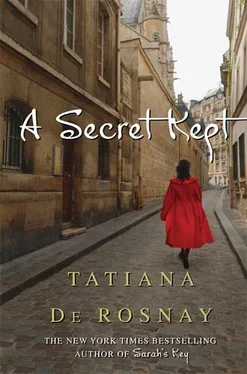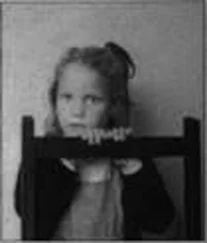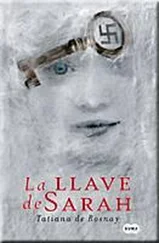On Sunday morning Lucas and Mélanie go for brunch on the rue Daguerre. I shower and shave. When Arno finally emerges from his room, I still have absolutely nothing to say to him. He seems disconcerted by my silence. Bent over the Journal du Dimanche and a coffee, I don’t even raise my head as he shuffles noisily around the kitchen. I don’t have to look up to know he is wearing his wrinkled, unclean navy blue pajama bottoms, no T-shirt. Scrawny back, jutting ribs. A flock of red pimples between his bony shoulder blades. Long, greasy hair.
“Is there a problem?” he finally mumbles, crunching his cornflakes loudly.
I remain absorbed by my reading.
“You can at least, like, talk to me,” he bleats.
I get up, fold my paper, and walk out of the room. I need to physically get away from him. I feel the same revulsion I experienced last night in the car. I never thought such a thing could be possible. You always hear about children being disgusted by their parents, not the other way around. Is this a taboo subject, something no one talks about? Am I the only parent to feel this way? Would Astrid ever feel this way? No, she couldn’t. She gave birth to these kids. She carried them.
The doorbell rings. I glance at my watch. Getting on for noon. Too soon for Mel and Lucas to be back, they only just took off. Probably Margaux, who forgot her keys. I feel nervous about confronting my daughter. I don’t know how to express my tenderness for her, all my concern at this fragile, difficult moment in her life. I open the door almost fearfully.
But it is not Margaux’s slight figure waiting for me on the doorstep. It is a tall woman wearing a black Perfecto jacket, black jeans, and black boots, holding a helmet against her hip. I quickly gather her into my arms and crush her wildly against me. She smells of leather and musk, an intoxicating combination. I hear Arno’s step on the creaking floorboards behind me, but I don’t care. He has never seen me with any woman apart from his mother. “I thought you could do with a little sexual healing,” she murmurs against my ear.
I draw her into the warmth of the apartment. Arno stands there stupidly. Gone is the impertinent teen. He cannot take his eyes off the Perfecto jacket.
“Hello. I’m Angèle. Your father’s number one fan,” says Angèle slowly, looking him up and down. She holds out her hand and bares her perfect white teeth in a wolfish smile. “I believe we met at the hospital this summer.”
Arno’s face is a perfect mixture of surprise, shock, discomfort, and delight. He shakes Angèle’s hand and scuttles off like a shy bunny.
“Are you okay?” she says to me. “You look-”
“Like hell.” I grimace.
“I’ve seen you look perkier.”
“The past forty-eight hours have been-”
“Interesting?”
I take her in my arms again, nuzzling the top of her glossy head.
“Devastating, is more like it. I don’t know where to begin.”
“Don’t begin,” she says. “Where’s your room?”
“What?”
The slow, greedy grin.
“You heard me. Your room?”

As I lie in bed, her scent still on my skin, I hear the muffled roar of the Harley cut through the Sunday-night silence. She is gone. She stayed for the entire day. But I know she will be back, and the mere thought of that comforts me. Angèle seems to propel a new vitality into me, the way the embalming fluid she pumps into her patients restores their lifelike color. I don’t mean only the sex, which of course is an important and thrilling part of our affair. I also mean the matter-of-fact, down-to-earth manner she has of dealing with the agonizing issues of my life. We had gone over each different issue, in my bed, holding each other.
Margaux. Had she been seeing a grief counselor? Someone she could talk to about her best friend dying in front of her very eyes? That was absolutely necessary. I made a note of it. Angèle went on about the way teenagers dealt with death, how some of them were lost, upset, in shock, and how others, as she had all those years ago, grew up instantly but gained a certain hardness that would never wear off.
Arno. Slapping him probably made me feel better, but it was not going to help us communicate. There would come a time, she said, when I would have to sit down and talk to him, really talk to him. Yes, he needed limits, and yes, I was right to put my foot down, but I would have to stick to this new inflexibility. I had smiled when she said that and stroked the curving softness of her naked hips. What did she know about teenagers? I murmured. Did she have one hidden somewhere that she had forgotten to mention? She had turned around to glare at me in the dim light. What did I know about her life, apart from her job? Nothing much, I admitted. Well, she had a sister, a little older, divorced, who lived in Nantes. Nadège had three unruly teenagers, eighteen, sixteen, and fourteen. Their dad had remarried and was no longer involved enough to give a hand in their upbringing. Angèle was the one who gave a hand. She held them on a tight rein, but she was honest and fair with them. Every week, she spent a night in Nantes at her sister’s house. It was easy, as the Le Loroux-Bottereau hospital was only twenty kilometers away. She loved those kids, even if they were sometimes hell to deal with. So yes, she knew all about teenagers, thank you very much.
Clarisse. I had shown Angèle the photographs. “What a beautiful woman!” she exclaimed. “The spitting image of your sister.” Then I told her why Mélanie lost control of the car. Her face sobered up instantly. I could tell she was trying to find the right words. She knew how to deal with death, she knew how to deal with teenagers, but this particular issue was a tough one to cope with. She remained silent for a couple of minutes. I tried to describe my mother, her straightforward simplicity, her rural upbringing we knew nothing about, the contrast between the prosperous Rey family and her country girl childhood, but I found myself faltering, powerless to summon her back, to explain to Angèle who my mother really was. Yes, that was it, that was the heart of it, the dark heart of it. Our mother was a stranger. And even more so since Mélanie’s flashback.
“What are you going to do about this?” Angèle had asked.
“When I am ready, and I think I will be quite soon, after the funeral, after Christmas, I want to go see my grandmother, with Mélanie.”
“Why?”
“Because I’m sure she knows something about my mother and this woman.”
“Why can’t you talk to your father?”
The question was so simple, so easy. I was taken aback.
“My father?”
“Yes, why not? Don’t you think he knows about this? He was her husband after all.”
My father. His aging face, his shrunken silhouette. His rigidity. His authority. The Commendatore’s marble statue.
“I don’t talk to my father.”
“Oh well, I didn’t speak to my dad either,” she drawled. “But that’s because he died.”
I had to smile.
“You mean you had a fight and you’re no longer on speaking terms?” she asked.
“No,” I said, knowing full well how odd this would sound. “I have never talked to my father. I have never had a real conversation with him.”
“But why?” she asked, baffled.
“Because that’s the way it is. My father is not the kind of person you can have a conversation with. He never shows love, never shows affection. He wants to be the boss, every time.”
“And do you let him?”
“Yes,” I admitted, “I did let him, because it was the easy way out. Because he left me alone. Sometimes I admire my son’s outbursts because I never dared confront my own father. No one talks to each other in my family. It’s something we were not taught to do.”
Читать дальше












